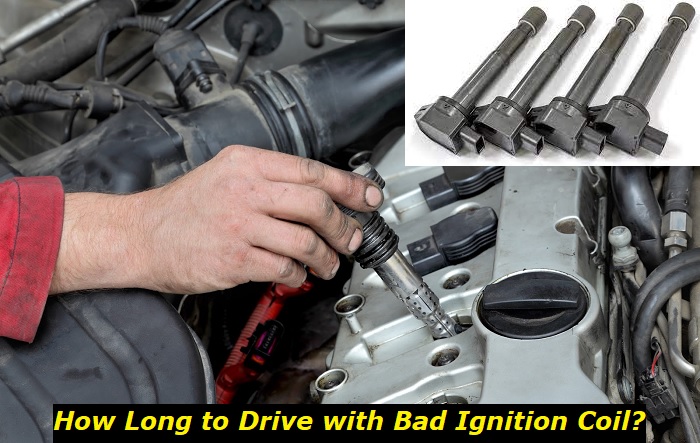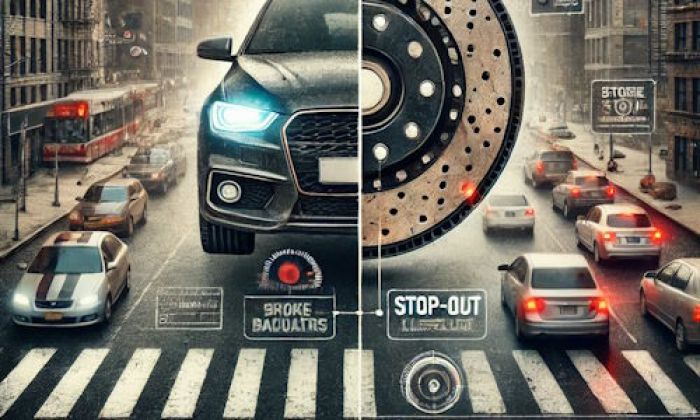Having a bad ignition coil in your car may lead to all kinds of consequences to your engine including complete engine failure. But the oil failure itself is not considered to be a major problem that needs immediate repairs. Sometimes, the car owner may not even know for months that one of the coils in the pack is malfunctioning.
Ignition problems highlights
- DIY repairs:possible
- Tools needed:basiccar repair tools
- Commonreasons:ignition coils, spark plugs, wiring, power supply
- Time to repair:1 - 3 hours
- Price for parts:$50 - $250
- Can you drive?Yes
- Alternative solutions:limping, swapping spark plugs, swapping ignition coils

What can go wrong if you drive with a broken ignition coil?
It may seem like a minor problem. One of the ignition coils fails but you have at least three other ones (in a 4-cylinder engine). And your car will still go. Worse, with much less power, with much more shaking and jerking, but it will go. And this makes some drivers think that they can actually drive until they find some time or money to have the vehicle inspected and repaired.
This is certainly not the most appropriate scenario for your car. When the coil malfunctions, there is a chain of events in the engine that you would not want to occur.
Here's what happens:
- your coil doesn't provide the current to the spark plug and the plug doesn't produce any spark;
- the fuel that is sprinkled into the combustion chamber by the injector doesn't burn because there is no spark;
- this fuel will get to the exhaust system and can also go down the cylinder block and appear in the oil;
- in the exhaust system, the unburnt fuel will then explode in the catalytic converter gradually killing it;
- in the cylinder block, this unburnt fuel will dilute the oil and deteriorate its qualities;
- also, the wires may go bad because the system still sends some electricity to the broken coil and the electricity then gets back which shouldn't happen normally;
- the engine vibrates excessively because one of the cylinders doesn't work or works intermittently (misfiring);
- the problem of detonation of the unburnt fuel may affect any part of the engine and slowly destroy the whole machine.
You can also investigate the problem of the broken coil deeper and find other consequences that are possible exactly for your engine. In some cars, ECUs will turn to limp mode once they count up a certain number of misfiring events. This will make things even worse for you.
So, you never know when and how the engine will react to a broken ignition coil. The problem is that it's sometimes hard to understand that the coil is failing because it rarely does it immediately. The process happens gradually and you get used to the somewhat harsh work of your engine and even think it's a proper aging symptom of the machine. But let's see what and how you can do to avoid this.
How long can you drive with a bad ignition coil?
This depends on how bad the situation is. If your coil is just dead, better avoid driving your vehicle for a long time. With a coil that only started occasionally malfunctioning, you can drive for a couple of days or weeks. But we recommend addressing the issue as soon as possible.
The most horrifying thing that happens when your engine is misfiring because of the faulty coil is the catalytic converter burning. It overheats from the inside and the ceramic honeycomb may even melt. It may also get clogged with the products of combustion. You should know that replacing the catalytic converter costs really much and without this, you will not be able to pass the fog test.
So, we believe driving with a bad coil over a day or two is not a good idea. This can lead to extensive damage to the catalytic converter, cylinder block, and many other parts of the engine.
Also, the diluted oil may cause other problems with the cylinder block and engine head. Poor oil will not lubricate the engine parts as it should and eventually the engine will overheat and fail. Sometimes, repairing your engine after such events is just too expensive.
Understanding your engine has a bad ignition coil
Unfortunately, it's not really easy to locate the issue with ignition coils. You are not likely to understand the problem on the spot. At first, you will notice that the engine is a little harsh when it works. It may accelerate with some sudden losses of power, it can also have bad idle. The engine may stall when idling because of the bad ignition coil.
Then, the symptoms may go worse. For example, you may see the check engine light on the dashboard because the ECU has registered too many events of misfiring. This may also launch limp mode and your vehicle will just not have any power.
Here is the list of symptoms you should pay attention to:
- harsh engine work;
- uneven idle RPM;
- stalling at crossroads and traffic lights;
- poor acceleration;
- low power;
- unusual noises from the engine;
- bad gas mileage;
- gas smell under the hood of the vehicle;
- limp mode - all kinds of error messages are possible;
- hesitation when you press the gas pedal.
All of these symptoms are possible in your vehicle. They may appear one by one or altogether. There may be two or three symptoms from this list. It still means that you should pay attention to the ignition coil. But also remember that sometimes there may be other problems that have just the same symptoms.
Checking the ignition coil is not easy - you will need some electrical equipment and also some experience for this. But if you know what cylinder malfunctions (after reading codes by a scanner, for example), you may just swap ignition coils between the faulty cylinder and some other one. If the codes will still show the problem in the same cylinder, you may keep on searching for the problem. If the problem moves to another cylinder, the problem is obviously with the coil.
Why do your ignition coils fail?
If the coil fails once every 30-40 thousand miles, this is just fine. Replace the faulty coil or replace the full pack of coils to drive another 30K miles with no problems. Coils transmit high-voltage current and they may fail over time just because they are not eternal.
But what if you have to replace your coils once a year or even a couple of times a year? This is certainly not a normal situation unless your car goes a hundred thousand miles a year. Coils are quite expensive for the majority of modern vehicles, so you should check some things.
Premature ignition coil failure is most likely caused by these issues:
- spark plug problem - the plug may have gone bad and now sends some electric current back to the coil burning it gradually;
- wire problems - wires that are connected to ignition coils are rarely faulty, but you can check them and also replace them every time you are changing the failed coil;
- engine vibrations - the coils are inserted into special wells where spark plugs are located and excessive vibrations may literally break them;
- bad ignition system - if the ignition system fails, it may affect the spark plug which in turn will affect the coil;
- water damage - if water was in contact with the coil, it's very likely the coil will pass away pretty soon;
- heat damage to the coil - overheated engine can kill spark plugs and coils by extensive temperatures, so keep an eye on this.
Also, one more possible issue is the quality of the coil. If you buy cheap aftermarket parts, they are not going to run for ages. Also, if you install ignition coils with wrong parameters that aren't good for your engine, the problems will likely come very soon. So, be careful when choosing parts for repairing your vehicle.
Can you replace the ignition coils yourself?
This is not the hardest task in car maintenance but we still recommend you find a specialist who will do that. Labor costs are minimal and you are guaranteed that there won't be problems with the ignition system after a professional does the job.
We won't describe the full process of replacing a coil - better watch a video tutorial on some of the reputable channels on Youtube. But again - before you get the tools and approach your vehicle's engine bay, think twice whether you really want to risk your car's health for a couple of dollars.
About the authors
The CarAraC research team is composed of seasoned auto mechanics and automotive industry professionals, including individuals with advanced degrees and certifications in their field. Our team members boast prestigious credentials, reflecting their extensive knowledge and skills. These qualifications include: IMI: Institute of the Motor Industry, ASE-Certified Master Automobile Technicians; Coventry University, Graduate of MA in Automotive Journalism; Politecnico di Torino, Italy, MS Automotive Engineering; Ss. Cyril and Methodius University in Skopje, Mechanical University in Skopje; TOC Automotive College; DHA Suffa University, Department of Mechanical Engineering





Add comment